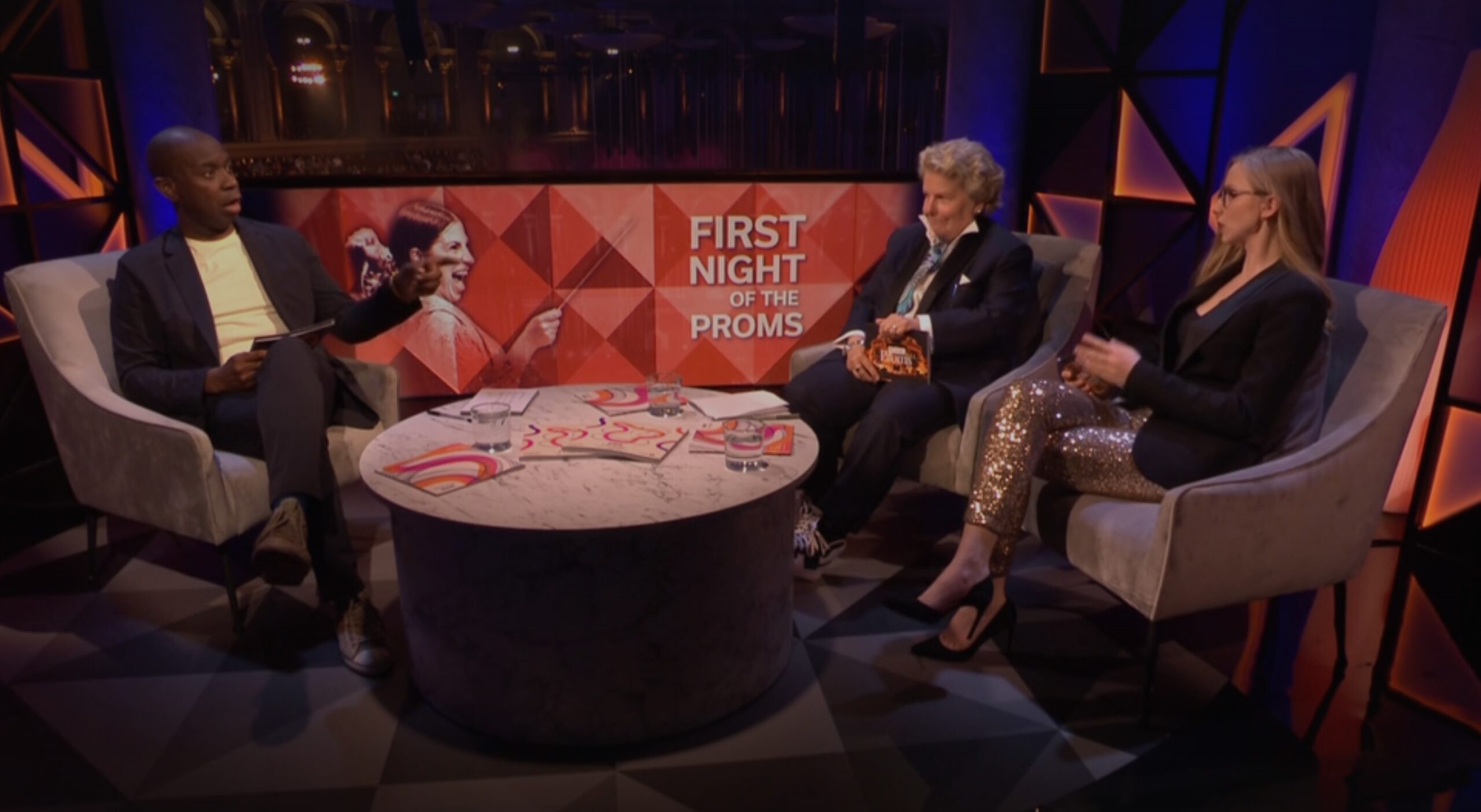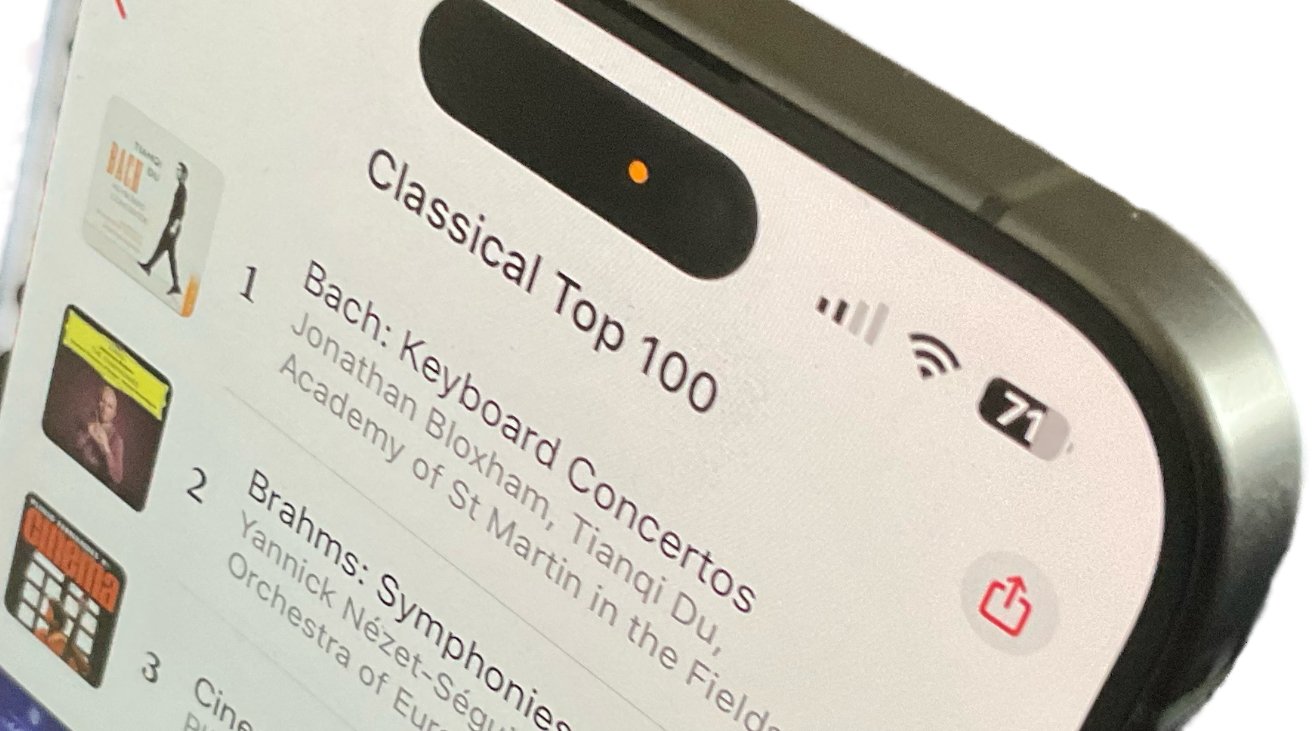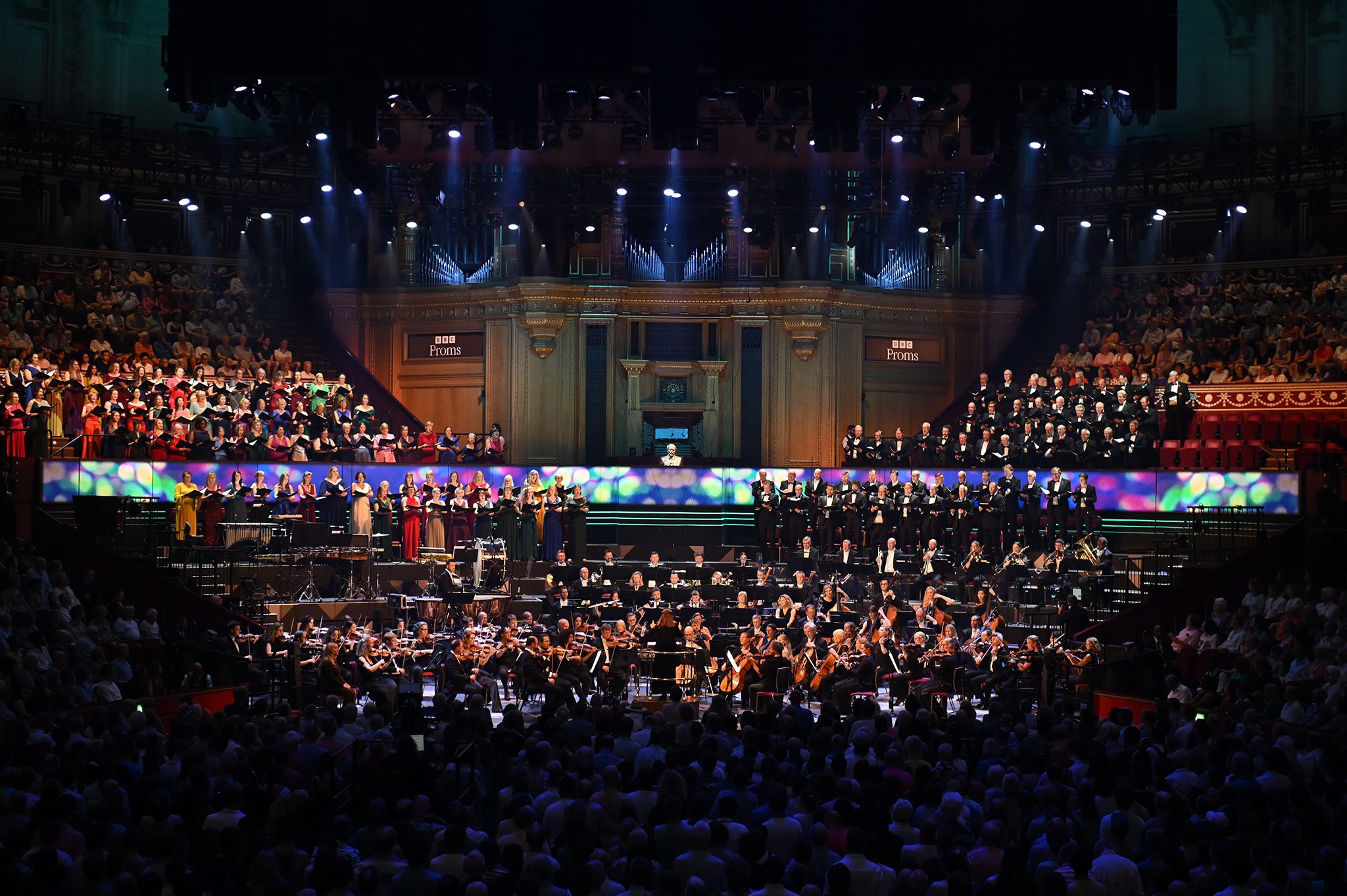Even if the season-wide programme doesn’t tickle my taste buds in the way it used to ten or fifteen years ago, there are distinct improvements in the TV coverage already discernible from the First Night.
Clive Myrie is clearly enthusiastic, though needs to vary his intonation and dial down his emphasis for fear of appearing like he doesn’t know quite what it is he’s introducing. He’s plausible. I’m just not convinced he actually understands what he’s reading from his cue cards. This in itself is not necessarily a bad thing because it’s clear I (and others like me) aren’t necessarily the target audience.
In the TV output, the BBC Proms demonstrates what it’s required to do to meet its public service responsibility in relation to classical music. The way it’s doing that on TV (based on The First Night) is a good deal more polished and less clunky than it has been in previous years. The simple act of broadcasting live made watching considerably more tantalising too – a reflection of how concerts are themselves events which is in itself part of their appeal. The direction felt solid, and the long-awaited introduction of a top shot added something immersive to proceedings.
Radio 3’s all-day countdown wasn’t quite the celebration I think they hoped it might be. Come 5pm the final two hours before the start of the season felt scattergun and awkward, packed full of PR lines and self-reference. Let the season speak for itself. But again, I am not the target audience. Anticipating the season start is a way of hooking listeners in, getting them to listen or watch right from the off.
But producers might want to have a quiet word in presenter Clive Myrie’s ear. His comments about musical literacy being ‘boring and naff’, doesn’t work quite as well at building an audience as he might think. For the BBC Proms lead presenter to illustrate how little he understands about the industry, the state of music education, and what’s required of musicians on stage in order to play the music we hear shows a lack of research (not great for a journalist) or reverse snobbery, or maybe even a mix of the two. Either way, his comments might help drive engagement on his Twitter account, but it’s doing precious little for the wider industry or for reassuring the industry that the BBC does actually care about classical music.
Myrie’s bizarre comments are more closely aligned to what the BBC thinks more generally about classical. For those who aren’t aware, the Corporation released a classical music strategy earlier in the year which sought to kill off the BBC Singers and 20% of English orchestral players. The strategy was widely ridiculed, there was a noisy campaign the BBC no doubt wasn’t expecting, and some decisions to axe things were put on hold, no doubt in order to prevent the Proms being impacted by striking BBC musicians. Negotiations are ongoing with Musicians Union. In this way, Myrie’s comments look no different from the weird statements coming out of the BBC when it announced its strategy. In alienating a significant part of its audience Myrie has unwittingly trampled on all the good work the TV teams have done over the past few years to transform presentation. Gah.
Myrie aside, if the TV coverage continues on BBC Four the way it appeared on BBC Two on Friday night, then TV will have worked hard to compensate for the comparatively lack-lustre season and the stupidly self-inflicted damage the BBC’s botched classical music strategy inflicted. Don’t be lulled into a false sense of security by the shininess of TV, however. The talk amongst some BBC conductors I spoke to last week is that there are going to be some Quite Unpleasant Announcements to come about the BBC’s performing groups after the Last Night credits have rolled.



